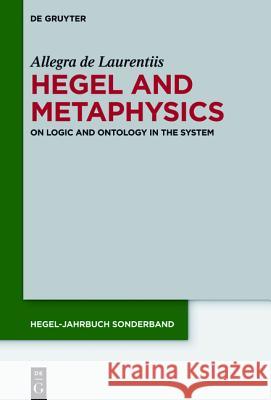Hegel and Metaphysics: On Logic and Ontology in the System » książka
Hegel and Metaphysics: On Logic and Ontology in the System
ISBN-13: 9783110427233 / Angielski / Twarda / 2016 / 240 str.
The collective focus of the essays here presented consists of the attempt to overcome the deadlock between metaphysical and non- (or anti-) metaphysical Hegel interpretations. There is no doubt that Hegel rejects traditional and influential forms of metaphysical thought. There is also no doubt that he grounds his philosophical system on a metaphysical theory of thought and reality. The question asked by the contributors in this volume is therefore: what kind of metaphysics does Hegel reject, and what kind does he embrace? Some of the papers address the issue in general and comprehensive terms, but from different, even opposite perspectives: Hegel's claim of a 'unity' of logic and metaphysics; his potentially deflationary understanding of metaphysics; his overt metaphysical commitments; his subject-less notion of logical thought; and his criticism of Kant's critique of metaphysics. Other contributors discuss the same topics in view of very specific subject-matter in Hegel's corpus, to wit: the philosophy of self-consciousness; practical philosophy; teleology and holism; a particular brand of naturalism; language's relation to thought; 'true' and 'spurious' infinity as pivotal in philosophic thinking; and Hegel's conception of human agency and action.











